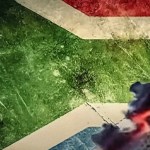By the end of 2008, 60% of the South African electorate indicated that they felt close to a political party. The Western Cape was the only province where less than half (48%) of the respondents said they felt close to a political party compared to more than 70% in the Free State. This meant that more than half of Western Cape voters make their decisions according to what is presented before them and not according to party affiliation per se.
The 2008 Afrobarometer research, as quoted by Professor Cherrel Africa of the University of the Western Cape, revealed that respondents in the Western Cape had very little trust in the then newly elected ANC president. That Afrobarometer Research said only 13% of respondents in the province, compared to 70% in KwaZulu-Natal and 68% in Mpumalanga, said they trusted the President “always” or “most of the time”.
By 2014, that level of trust by respondents in the Western Cape in the ANC president had ebbed even more.
During the 2014 election campaign, one constant message we received from volunteers working the ground, moving from house to house, asking our people to vote ANC on 7 May 2014, was the demoralising question about Nkandla. The public protector had released her Secure in Comfort report two months earlier, and there was nothing else occupying the nation’s psyche. It was a classical case of “your actions are too loud, I can’t hear what you saying”.
After the President’s birthday at Vygieskraal Stadium, a very successful event that served to boost our election campaign in the Western Cape, I decided to take a walk on the nearby streets of Athlone, feeling buoyed and encouraged by the atmosphere and positive energy of the campaign. Wearing an ANC T-shirt with Zuma’s face on it, I passed one house where a group of about six children, ranging in age from five to seven, were playing outside the gate. As I walked past they started shouting at me, “We won’t vote for Zuma, Zuma is corrupt”. I gave an uncomfortable smile and pointed out to them that they were too young to vote.
The incident troubled me, however. I imagined that the children were replaying conversations their parents had daily at dinner tables. Nkandla had become the theme of the 2014 elections. Our team decided to put together response messages to the Nkandla question for our volunteers, but it was never adequate.
Sitting at the ANC table outside a voting station in Mitchells Plain, an old man, who looked like he had fallen on hard times and who probably lived on the streets, approached us. I thought he was going to engage ANC representatives on its poverty alleviation programmes or plan to eradicate homelessness. “You people are stupid”, he began, “how could you vote for Nkandla, how could you vote for corruption?”
Right there I knew we had lost the elections in the Western Cape, badly. People who had more things to worry about could not get past Nkandla and corruption. We were undone.
In the Western Cape, 87% of voters had seen our presidential candidate as untrustworthy even before he became president, and by 2014 their worst fears had been realised. The concentrated and daily assault of the image of the ANC nationally as a result of Nkandla and corruption fed on the voter decisions of the Western Cape voters.
Perceptions of the trustworthiness of a political leader are critically important because they help voters to make judgements about the authenticity and persuasiveness of the messages put out by the leader. Campaign messages delivered by political parties and leaders perceived as trustworthy will be received more positively, allowing voters to engage more positively with the content of the message.
Ramaphosa belongs to Mandela’s league of extraordinary men who laid the foundation of the democracy that we today enjoy. Mandela lived his life with the discipline of a soldier and expected his inner circle to follow suit. Madiba was aware of the daily temptations on a leader as a result of power, wealth and influence and wanted his chosen ones to insulate themselves from falling into temptation by living sacrificial lives for the people.
Ramaphosa comes with this pedigree, having proven himself even to his high minded comrades that he has what it takes to move this country forward, by breaking deadlocks in negotiations when the new country was refusing to be born.
Like other leading figures in the world, Bill Clinton and Barack Obama, who led relatively “poor” lives while in office and then went on to make millions when they were private citizens, Ramaphosa fared no different. There is never a need to steal taxpayers’ money when you are a politician because your high position in government will always put you in good stead when you join private citizenship because of your unique skills and experience.
Ramaphosa is a gift to the Western Cape ANC because he gives us a clean break to write our own future without the burden of national politics. His non-racialism also brings great strength to a province that is prone to move into racialised politics due to the National Party and liberals’ particular concentration in this province to keep the 80% black majority divided.
The ANC in the Western Cape must now fix its own house and take advantage of an improved national ANC. It is in our hands. DM
















